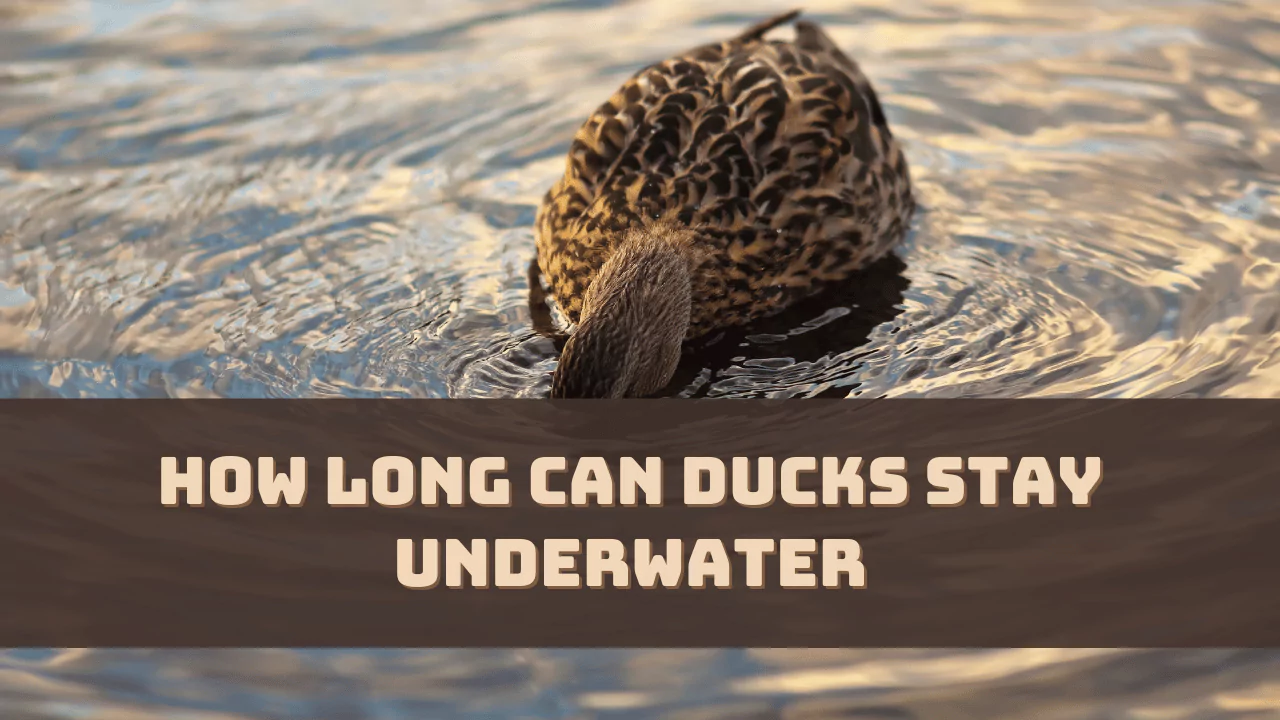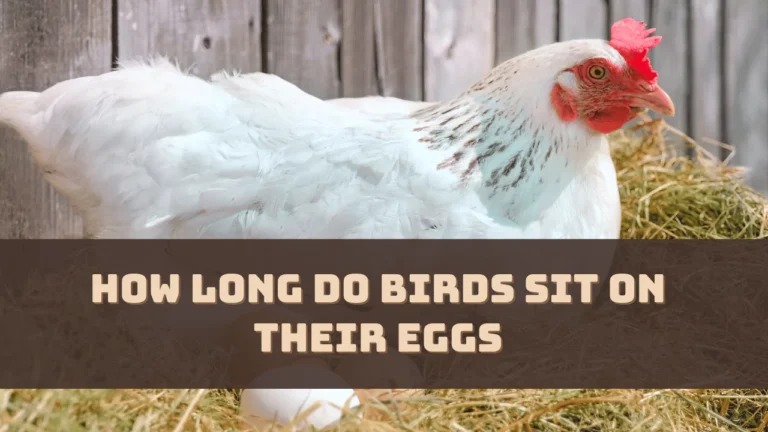Based on the species of duck, on average they can stay 10 to 16 seconds underwater and diving ducks have more capacity to hold their breath when compared with a dabbling duck.
Ducks are seen spending most of their time in the water where they dive into it to gather food. There are two different types of ducks – dabbling and diving and they have two different ways of diving into the water. So, let’s get to know more about ducks diving and how long they can stay underwater.
Why do Ducks Dive into Water?
Ducks dive into the water to get food and they have adapted this ability to be able to skim and grab things which are at the bottom of the water, this process is called dredging. Most food sources such as small fish, crustaceans, insects and tiny invertebrates are found underwater. They also feed on aquatic plants such as seaweed and algae
What are the Two Varieties of Ducks?
Ducks are divided into two groups – Diving and dabbling. Diving ducks are pro in diving into the waters and they are named so, while the dabbling ducks dabble when they eat that tip upside down. Both these ducks have different processes of finding food or holding their breath for different amounts of time.
The most commonly seen diving ducks are Bufflehead, Common Goldeneye, Hooded and Red-breasted Merganser and Greater and Lesser Scaup. The most common dabbling ducks are Mallard, Muscovy, American black ducks and Blue-winged teals.
How Long Can the Ducks Stay Underwater?
Diving ducks have a record of staying underwater for 30 to 60 seconds, whereas dabbling ducks can stay underwater for around 10 to 20 seconds. The more time a duck can spend underwater, the more differentiation comes through speciation. It has been found that some ducks drive 5 to 50 feet and feed on plants or molluscs which are found at the bottom of the pond and lake. There are exceptional cases too where some species of ducks have been seen to remain underwater for 90 seconds and more. On average, a duck can hold their bread for 25 seconds, but there are cases where a duck can hold their breath for a minute.
For example, The Red-breasted merganser can stay underwater for 44 seconds, the eiders and scoters can stay underwater for 60 seconds and the White-winged scoter can stay for 58 seconds underwater.
How Can a Duck Stay So Long Underwater?
A duck can stay for a long time underwater due to their bodily adaptation which can hold a large amount of oxygen and they also have an efficient distributing system. They also use their webbed feet to paddle and their head and beaks to navigate through water. Other factors are:
Cold Resistance
Ducks also stay in cold temperatures for a long time due to their feathers which help them to stay dry during rain and wind and webbed feet which help them to move forward. They also have semiplume feathers which conserve heat and are present underneath the contour feathers.
Holding Oxygen
Ducks have specialized air sacs which help them to hold their breath. These features also help them to maintain buoyancy. Thus, while they are diving into the water, the oxygen is efficiently distributed which reduces the use of oxygen and their heart rate also slows down, which conserves energy and oxygen. They can also reduce buoyancy by expelling water right before it dives.
Are Ducks Capable of Breathing Underwater?
Ducks are known to be expert divers because they can hold their breath when underwater but they do not breathe underwater. They do not have gills and their present anatomy is not adapted for breathing underwater and this is a common misconception. Ducks do not extract oxygen from water, however, they can use the stored oxygen in their body helping them to stay underwater for a long time.
Do Ducks Drown?
Yes, ducks can drown in water just like any other animal and this is mostly seen amongst ducklings who are yet to learn to swim and also they do not have a properly developed preen gland. Adult ducks drown only when they are forced under the water which happens during the mating or if the water current is too high.
How Deep Can a Duck Dive?
A duck can dive 5 to 60 feet underwater while it is looking for food. The type of duck decides the depth it can overcome. Usually, the dabbling ducks do not drive deep and simply stick their head into water but diving ducks can go as far down as 60 feet. They generally dive in search of food or plant matter which are found in ponds and lakes.
Do ducks Dive for Fish?
Yes, ducks die for fish and mostly diving ducks have the ability to go deep, and they can remain underwater for an extended period while looking for food.
Why Are Ducks Seen Flipping Underwater?
Ducks are seen flipping in water due to their natural behavior of foraging for food. They are seen tilting the body forward and using the webbed feet to propel downwards. After they reach a certain depth, they flip or dive headfirst into the water while looking for food such as small fishes, invertebrates and aquatic plants. With this flipping motion, they are able to access the food beneath the water surface easily.
Which Ducks Do Not Typically Swim Underwater?
The ducks which do not swim underwater are mallards, American black ducks, northern pintail and wood ducks. These ducks can dive for a few seconds just to escape the predator but not do they typically swim underwater.




